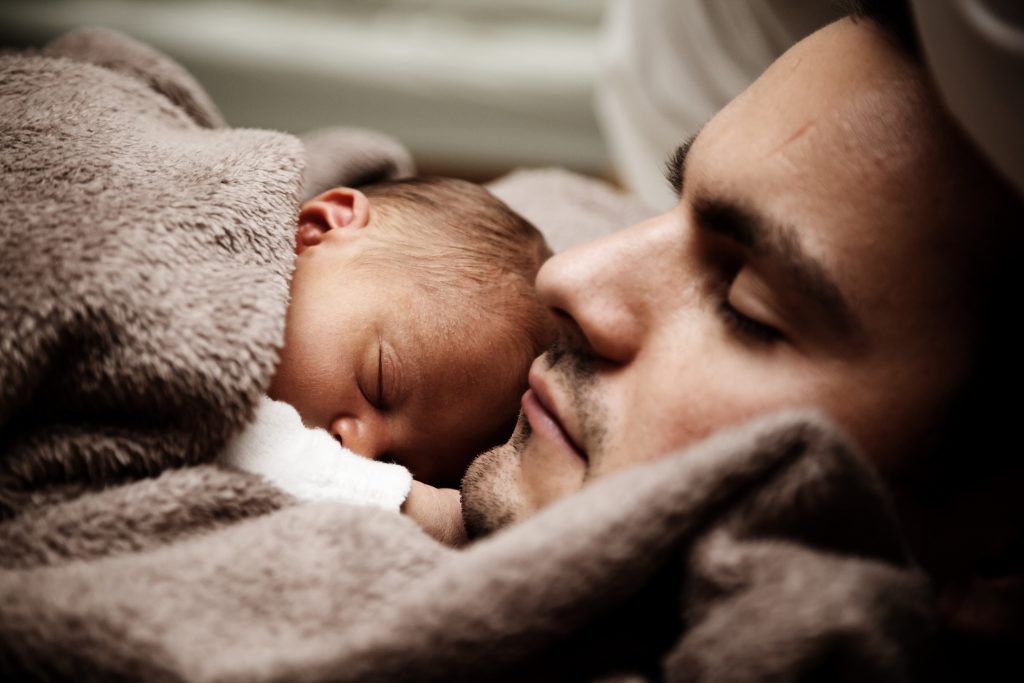Traveling with a newborn can seem daunting, especially for first-time parents. However, going on a trip during your baby’s first few months can be ideal for bonding as a family. You’ll have the opportunity to spend both quantity and quality time together. If you are planning a road trip or flight, be sure to first read through our ultimate checklist for preparing to travel with a newborn.
Routine
Although you might still be looking for any semblance of a routine, try keeping to your regular schedule as much as possible when traveling. This is for the benefit of both you and your newborn. Take things slower than usual, get to the airport four hours before, or start driving at 3 am: doing what works for your family is key.
Feeding
Most parents will tell you that the best part about traveling with a newborn is that they are yet to become fussy eaters. Here are some considerations for feeding your newborn on the go, whether on the breast or the bottle:
Breastfeeding
If you are exclusively breastfeeding, this is an easy way to travel. However, it does mean that mothers need to take additional precautions before traveling. Be sure to stay hydrated and carry plenty of healthy snacks. In addition, wear clothing that doesn’t easily show leaks and provides comfortable access in confined spaces.
If you intend to travel with frozen breastmilk, ensure that you have a good cooling system for any unforeseen delays. You will also want to pack your breast pump, charger, and special cleaning solution.
Bottle feeding
Keeping bottles clean and sterilized is a top priority when traveling and can be the most challenging aspect of feeding a newborn on the go. Ideally, pack more bottles than you would typically need for the duration of your journey to avoid needing to clean them. When boiling bottles is not an option, consider sterilizing with a microwavable sterilizing bag or sterilizing tablets. Here are some other considerations when bottle-feeding a newborn while traveling:
- Keep formula in its original, sealed containers
- Travel with your preferred formula brand, in case it is not easily accessible in your destination
- Clean and sterilize your bottles whenever you get the chance
- Keep separate, marked wet bags for sterilized bottles, clean bottles, and dirty bottles
- Prepare and use a formula dispenser
Sleeping
The Sleep Foundation advises that newborns get 14 to 17 hours of sleep within a 24-hour period. However, some newborns can need upwards of 19 hours of sleep per day. While you may need to stop and safely feed every few hours, you’ll have plenty of uninterrupted travel time in between.
Driving
For generations, parents have found that the lull of a moving vehicle calms their child to sleep. A scientific study published in Current Biology backs up this statement that gentle rocking is an infant calming response with a coordinated set of central, motor, and cardiac regulations. However, if you intend to go on a long car journey with a newborn in a car seat, follow these safety tips:
- Use a top quality car seat
- Always install the car seat to the manufacturer’s instructions
- Always use the LATCH system or a locked seat belt
- If in doubt, speak to a Certified Passenger Safety Technician
- Only use a rear-facing car seat designed for a newborn
- Always put the car set in the back seat
- Take regular breaks
- Check your child’s temperature and ensure they are neither too hot nor too cold
- Avoid dressing your baby in bulky clothing and instead use a blanket after strapping them in
Flying
The first time flying with a newborn can be intimidating. However, here are some top tips to make your journey more straightforward:
Booking your flight
You cannot book a flight for a newborn until they are born, as you will need to include a date of birth on the flight reservation. For example, it is generally possible for the parent to book a return ticket and add a baby to their booking later. However, the rules for flying while pregnant or with an infant are at the airline’s discretion and the country, so it is best to check before buying a ticket.
If possible, we recommend speaking to a customer service representative to ensure your intended flight date has an infant cot available. There are a limited number of each flight, and you will certainly want to book one.
Packing for a flight with a newborn
Check with your airline to see what luggage allowance your newborn is entitled to. Each airline has its own regulations, and you don’t want to be caught at the airport spending a fortune on extra luggage.
Documentation required for air travel
Every country has its own set of rules and regulations for traveling with a minor, but in general, it is best to always travel with:
- An original or certified copy of the unabridged birth certificate for your child, which includes the names of both parents
- A certified Letter of Affidavit of Travel from any non-traveling parent or;
- A certified copy of a death certificate from the non-traveling parent or;
- A certified copy to show proof of sole custody.
Our last tip is to consider making an online order for bulky items such as diapers, wet wipes, and formula and sending these onwards to your destination. This way, as long as your diaper bag is packed with the essentials for travel, then you’ll be good to go.
